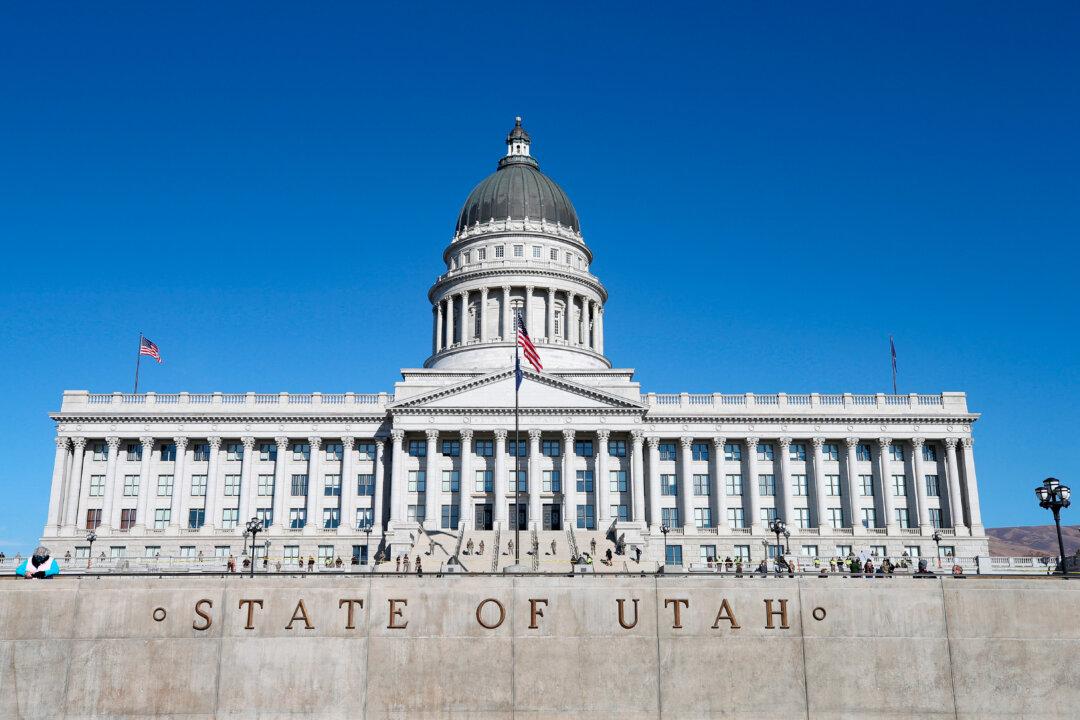The Utah Legislature on Jan. 26 approved two conservative-minded bills that prompted Democrats to don all black in mourning—one that bans men from women’s bathrooms and another that ejects diversity, equity, and inclusion (DEI) from public education.
Utah state lawmakers in both chambers gave final legislative approval on Jan. 26 to H.B. 257, titled the Sex-based Designations for Privacy, Anti-bullying, and Women’s Opportunities Act. The measure prohibits men who identify as women from accessing women’s bathrooms in schools and government buildings.





